Iran welcomes further talks with Europe as deadlock with US persists
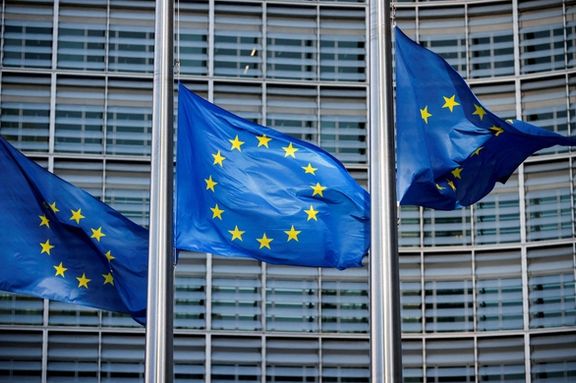
Iran seeks to continue talks with European powers, foreign minister Abbas Araghchi said on Tuesday, even as the prospect for negotiations with the United States dimmed.

Iran seeks to continue talks with European powers, foreign minister Abbas Araghchi said on Tuesday, even as the prospect for negotiations with the United States dimmed.
Abbas Araghchi, attending the 8th Indian Ocean Rim Association (IORA) meeting in Muscat, Oman, on Monday, made the remarks during a meeting with Wolfgang Amadeus Bruelhart, the Swiss special envoy for the Middle East and North Africa.
US President Donald Trump reinstated his "maximum pressure" policy on Iran earlier this month, aiming to force Tehran to abandon any pursuit of nuclear weapons.
Washington is expected to tighten enforcement of economic sanctions, further straining Iran's economy, which is already grappling with high inflation, energy shortages, and declining oil export revenues.
Araghchi also expressed Tehran’s readiness to continue diplomatic meetings with Germany, France and the United Kingdom that began late last year, aiming to find solutions for the deadlock in relations with the West.
The three European powers are original signatories of the 2015 JCPOA nuclear agreement.
The Swiss envoy underscored the importance of ongoing bilateral discussions with Iran on a range of regional and bilateral issues.
He reaffirmed his willingness and readiness to continue dialogue and consultations, including during the next round of talks in Tehran.
Iranian officials have been emphasizing that Trump should change his tone regarding Iran and not issue threats if he wants to open talks with Tehran. Araghchi on Monday repeated that position also during another meeting.
"Iran’s position is clear and explicit: We will not negotiate under pressure and threats," Araghchi told reporters in Tehran after a meeting with his Sudanese counterpart.
Although Trump reinstated his policy of strict sanctions enforcement, he also extended an offer to meet with his Iranian counterpart. However, Supreme Leader Ali Khamenei rejected the possibility of negotiations earlier this month.
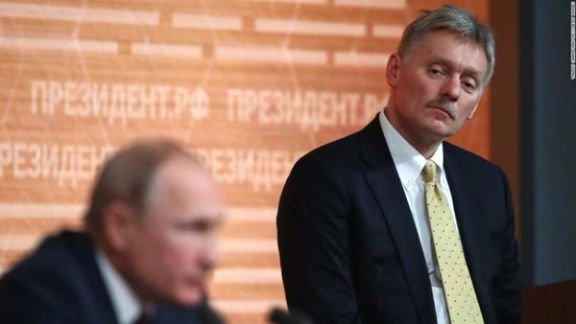
The start of talks between Russia and the United States will not impact Moscow’s cooperation with Tehran, Russia's TASS news agency reported citing Kremlin spokesman Dmitry Peskov.
Peskov added that Russia is ready to assist Iran in addressing issues related to its nuclear program.
"Moscow attaches great importance to good relations with Iran and intends to develop them comprehensively, including providing assistance in solving the main problems, including the nuclear program," he said.
Last week, Russia's envoy in Tehran said that Western countries are trying to marginalize Russia and China in discussions regarding Iran's nuclear program.
"Without Russia and China, such negotiations will never achieve their goal and will not be productive," Alexey Dedov said in an interview with RIA Novosti on Tuesday.
Russia remains a critical partner in Iran’s nuclear infrastructure, spearheading projects such as the expansion of the Bushehr Nuclear Power Plant.
Tehran's political establishment is divided over the country's relationships with Russia and China. While some prioritize the economic benefits of trade with both nations, others, particularly the Reformist faction, express concern about Moscow potentially exploiting US-Iranian tensions.
Reformist politician Mahmoud Mirlohi, in an interview with the Didban Iran website, argued that Iran must maintain an independent foreign policy. He emphasized leveraging ties with Russia and China as a means to improve relations with the United States, warning, "We should not allow Russia to use Iran as a pawn in its dealings with the United States."
Mirlohi also expressed concern about the repercussions of Iran's military support for Russia in the Ukraine war, calling it "a serious cause for concern" and stressing that cooperation with Russia should not jeopardize relations with other countries.
The war in Ukraine has directly impacted the stalled negotiations to revive the 2015 JCPOA nuclear agreement, of which Russia is a signatory. These talks, which had been ongoing in Vienna for 12 months under the Biden administration, were abruptly halted in March 2022 following the Russian invasion.
Iran and Russia earlier this year signed a major treaty aimed at deepening bilateral ties. However, this agreement stopped short of establishing a formal military alliance or imposing binding obligations on either side, suggesting a cautious approach to solidifying their relationship.
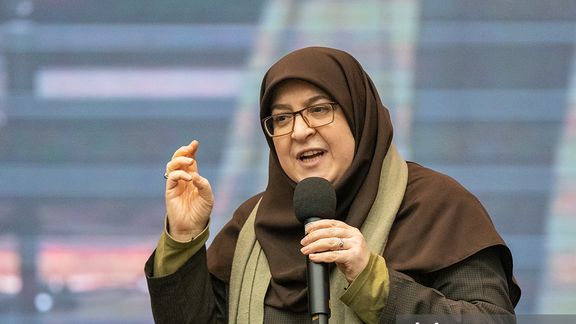
Iran sees no point in negotiations while the US enforces maximum pressure policies, the country's government spokeswoman said on Tuesday.
"Iran has always kept the door open for negotiations, but when maximum pressure [directive] is signed, talks become meaningless," Fatemeh Mohajerani told reporters.
"An interagency plan to counter maximum pressure will be announced soon, and all parties are prepared," she added.
Earlier this month, US President Donald Trump signed a directive restoring the so-called maximum pressure policy on Iran of his first term and warned of "catastrophic" consequences if Tehran does not make a deal on its nuclear program.
After signing the memorandum, he said he would prefer a deal with Tehran to an Israeli attack on their nuclear sites.
On Monday, Iranian Foreign Minister Abbas Araghchi said Washington's maximum pressure campaign of sanctions and mooting of military force will not force Iran to negotiate about its nuclear program.
"Iran’s position is clear and explicit: We will not negotiate under pressure and threats," Araghchi told reporters in Tehran after a meeting with his Sudanese counterpart.
"The presidential order for maximum pressure speaks for itself. Maximum pressure and resolutions have never been effective against Iran … We will not negotiate under threat," he added.
The remarks appear to represent a hardening line by Tehran to the suggestion by US President Donald Trump that Iran come to a deal with Washington about its disputed nuclear program or potentially face military strikes.
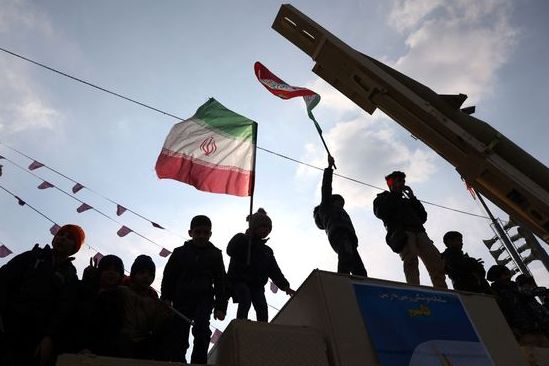
Washington's so-called maximum pressure campaign of sanctions and mooting of military force will not force Iran to negotiate about its nuclear program, Foreign Minister Abbas Araghchi said on Monday.
"Iran’s position is clear and explicit: We will not negotiate under pressure and threats," Araghchi told reporters in Tehran after a meeting with his Sudanese counterpart. "The presidential order for maximum pressure speaks for itself."
The remarks appear to represent a hardening line by Tehran to the suggestion by US President Donald Trump that Iran come to a deal with Washington about its disputed nuclear program or potentially face military strikes.
"Maximum pressure and resolutions have never been effective against Iran … We will not negotiate under threat," Araghchi added.
Trump this month signed a directive reviving his maximum pressure policy on Iran from his first term aimed at driving the Islamic Republic's oil exports to zero. After signing the memorandum, he said he would prefer a deal with Tehran to an Israeli attack on their nuclear sites.
"I would love to make a deal with them without bombing them," he later said on Fox News, drawing ire in Iran.
Iranian Supreme Leader Ali Khamenei appeared to reject the idea of talks with the hawkish Trump administration and senior leaders have fallen in with the position.
The Emir of Qatar Sheikh Tamim bin Hamad Al Thani is due to visit Tehran for a bilateral visit, Araghchi added, saying that there was no indication he carried a message or would be playing any mediating role.
A key go-between in regional conflicts, Qatar maintains good relations with both Tehran and Washington.
Al Thani's visit represents one of the most high-level foreign visits to Iran as it has been locked in over a year of direct and regional combat with Israel.
The Wall Street Journal and The Washington Post reported last week citing US intelligence assessments from January that Israel saw an opening for an attack on Iranian nuclear sites as early as the first of this year with Iran weakened and Trump seen as sympathetic to a strike.
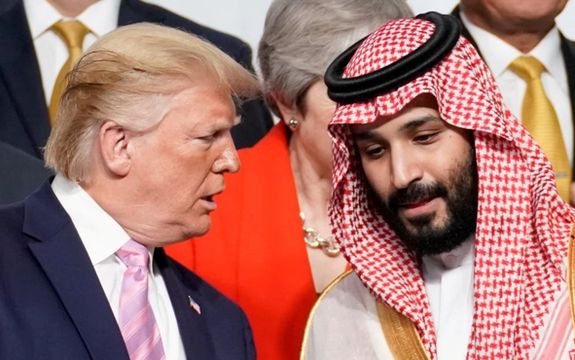
Tehran has reacted with suspicion to a report suggesting regional rival Saudi Arabia may mediate between Iran and US President Donald Trump, in the latest twist to a drama over whether Iran would accept Trump's overtures for a nuclear deal.
CNN reported on Sunday that Riyadh is open to brokering discussions between the US and Iran to curb Tehran’s nuclear program.
The kingdom is concerned, the US network reported, that Iran might pursue nuclear weapons more aggressively after Israel battered regional allies which had acted as Iran's deterrent to a direct Israeli attack for decades.
Asked about the CNN report at his weekly press briefing Monday, Iran's foreign ministry spokesman Esmaeil Baghaei denied any knowledge and said these were only “media speculations.”
An article titled "Will Saudi Arabia Mediate Iran-US Negotiations?" published by Nour News on Monday outlined key obstacles to Saudi mediation. It highlighted Iran's deep mistrust of the US, shaped by the policies of former President Donald Trump, who withdrew from the 2015 nuclear deal. The article also pointed to conflicting Iranian and Saudi interests in regional matters, including Lebanon, Iraq, and Syria, as additional challenges to mediation efforts.
Iranian authorities are “seeking strong guarantees of reduction of sanctions before entering new talks,” the media outlet close to former Iranian national security chief Ali Shamkhani, wrote.
Despite these challenges, Nour News acknowledged the potential for reduced tensions and even a new agreement if Saudi Arabia facilitates balanced, pressure-free negotiations.
Foreign affairs expert Ali Bigdeli, speaking to Nameh News on Sunday, noted that Saudi Arabia’s diplomatic influence had grown, citing an upcoming US-Russia meeting in Riyadh as evidence. He suggested Iran might view Saudi mediation positively. “Mr. Araghchi’s visit to Oman may not be unrelated to this matter,” he added.
Bigdeli also argued that Saudi mediation would differ significantly from that of Qatar, given Saudi Arabia’s dominant role in the Persian Gulf.
Iran's Supreme Leader Ali Khamenei repeatedly asserted in the past that the Islamic Republic would never engage in negotiations with the Trump administration. He also notably declined to respond to a message from Trump, delivered by former Japanese Prime Minister Shinzo Abe in June 2019.
In a speech on February 7, after Trump issued an executive order to reinstate his “maximum pressure” sanctions on Iran, Khamenei emphatically rejected talks with the United States.
Meanwhile, US Secretary of State Marco Rubio arrived in Riyadh on Monday ahead of planned talks between Trump and Russian President Vladimir Putin, to be hosted by Saudi Crown Prince Mohammed bin Salman. While Iran’s nuclear program may be discussed, no official announcements have been made.
On Sunday, US National Security Advisor Mike Waltz said President Donald Trump is willing to engage in talks with Iran only on condition that Tehran fully abandon its nuclear program.
"The President has also expressed a willingness to take whatever action is necessary. All options are on the table," Waltz told Fox News on Sunday, leaving the option of diplomatic channels open.
Oman acted as a mediator between Iran and the United States before the talks that led to the 2015 nuclear deal, and Qatar has recently offered to mediate new talks.
Speculation has risen that this topic may feature in the upcoming visit of Qatari Emir Tamim bin Hamad Al Thani to Tehran. However, Iranian Foreign Ministry spokesman Esmaeil Baghaei denied these claims during his weekly briefing on Monday.
Iran and Saudi Arabia restored diplomatic ties in 2023, facilitated by Iraq and China. The Saudi Embassy in Tehran reopened in August of that year, seven years after vigilantes attacked and torched the building in protest to the execution of dissident Shia cleric Nimr Baqir al-Nimr in Saudi Arabia.
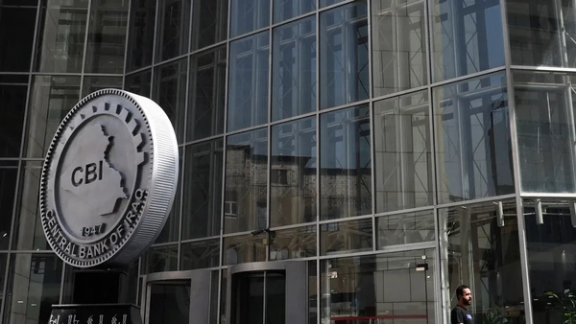
Senior Iranian and Iraqi officials held consultations in Baghdad as Iraq’s central bank banned five more banks from US dollar transactions following discussions with US Treasury officials.
The move is intended to combat money laundering and dollar smuggling alongside other unilateral financial restrictions that were imposed on eight banks in Iraq last year alongside Baghdad’s attempts to increase pressure on Tehran in regards to access to hard currency.
Iran’s Deputy Foreign Minister for Politics Majid Takht-Ravanchi met with Iraqi Deputy Foreign Minister Mohammad Bahr al-Uloom, along with National Security Advisor Qassim al-Araji and Deputy Speaker of the Iraqi Parliament Mohsen al-Mandalawi.
“Exchange of views on vital and important issues between the two close neighboring countries, who share many commonalities, is a must in this challenging time for the West Asia,” Ravanchi wrote on X.
The ban on Iraqi banks follows meetings in Dubai between officials from Iraq’s central bank, the US Treasury, and the Federal Reserve.
Iraq, which holds more than $100 billion in reserves in the US, is reliant on the approval of Washington in order to keep access to its oil revenue.
The recent restrictions are in line with US President Donald Trump’s reinstatement of his "maximum pressure" strategy on Iran, raising fears that Baghdad may experience increased financial difficulties putting it in between Washington and Tehran.
Iran views Iraq as an economic ally for hard currency, while it leverages strong ties with Shi’ite militants and political factions in the Arab country.
The US has long been seeking to restrict Tehran’s ability to bypass sanctions through its Arab neighbor’s financial system.
While the West has lauded Iraqi Prime Minister Mohammed Shia al-Sudani’s economic initiatives, the escalating financial strain could challenge Baghdad’s ability to balance Washington’s expectations with its economic connections to Tehran.